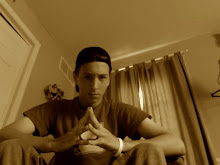Reason for not posting last week? Reviewing for Finals to finish a semester.
This was the last writing assignment for my Journalism class. Not a review, but something I wrote:
Journalists hold a powerful privilege – the words that they use influence and shape the minds of the public. Tied to that ability is the solemn charge not only to report what is true, but to be objective in the telling. The Society of Professional Journalists’ code of ethics and American Association of Newspaper Editors’ canons of journalism are voluntary guidelines for media professionals to avoid inaccuracy and errors. Such codes are important because they protect the public as well as the media practitioners; shielding the journalists from libel suits and the public from hoaxes.
The three areas from which ethical guidelines are derived are professional, philosophical, and controversy. The professional area is concerned with daily conduct of journalists performing their job, such as reporting truth, checking sources, and shunning plagiarism.
The philosophical area has two schools of thought, absolutist and situational. The absolutists think in terms of clear cut right and wrong decisions. Their mindset is to search for the categorical imperative – the search for principles that hold true in all situations. The situational school of ethics believes that there exists a grey area in which decisions are moral to different degrees. John Stuart Mill, an English philosopher, wrote in 1863 of a utilitarian principle. This principle measures the morality of a decision by whether it results in the greatest good for the most people.
The last area from which ethical guidelines are derived is controversy. This field seeks to minimize conflicts of interest and other misuses of the power of media. Controversy can arise from films when directors choose to depict artistic truths rather than historical facts. Another source of controversy is fixing odds in programming so that certain people win, generating buzz over the show. In 1958, the quiz show “Twenty-one” was fixed in the favor of Columbia University student, Charles Van Duren. He was a contestant on the show for 15 weeks and won $129,000. Disgruntled opponents brought Van Duren to court, proving that he had been fed the answers and was coached on his on-air behavior. Van Duren was convicted of perjury. The court case set a precedent that cut advertisers’ authority over programming and restored that privilege to the broadcast networks.
A recent controversy arose around former New York Times reporter Jayson Blair. Blair was hired at an entry level position at 23 years of age. By 2002, he was a national reporter for the Times. His career was brought under scrutiny when a Texas paper claimed that Blair had plagiarized off of his paper. When the Times analyzed 73 of Blair’s previous articles, they discovered that 36 of them contained plagiarism, factual errors, and fabrications. Blair resigned immediately after being confronted by the Times editor. The Times’ probe into Blair’s career ran 14,000 words. This length was usually reserved for catastrophic events of global importance, demonstrating how seriously the Times took Blair’s deception.
Blair’s career serves as a warning to journalists who are self-serving and careless in their professional duties. Of the four conflicting loyalties of journalism, personal conscience is the first defense. David Schorr, television reporter, had a personal code of ethics that prevented him from reporting on the Jews modern exodus from the Soviet Union. Schorr felt that a report could jeopardize the lives of the persecuted refugees, so he withheld the story from the broadcast news.
The second duty of journalism is to one’s emplolyer. The Gannett Corporation has a set of ethical guidelines for the employees of their 100 daily newspapers. The code states that journalists should report the truth, serve the public interest, exercise fair play, maintain independence, and act with integrity.
The third duty is the artistic perspective to the journalistic profession. Journalists see themselves as carrying a beautiful banner of truth and accuracy for the world to notice. Sometimes, the obligation to the nobility of their job demands that the indiscretions of family and friends be exposed.
Finally, there is a duty to society. The Communications Act of 1934 said that broadcasters should operate “in the public interest, convenience, and necessity,” This duty involves courtesy and sensitivity to the subjects of stories, such as granting media immunity to SWAT teams in operation.
At times it is not obvious which duty is to be followed, such as in times of war. There exists a balance of keeping the public informed while respecting the need for secrecy in military maneuvers. In WWI, countries could track the enemy’s position by reading that country’s newspapers. At the other extreme is the Vietnam War, in which the U.S. government withheld reasons for remaining in a war not our own and that America could not win.
3 weeks ago



No comments:
Post a Comment